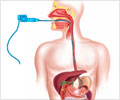Higher Mortality Reported among Upper GI Bleeding Patients Admitted on the Weekends.
Previous studies have raised questions regarding differences in quality of care for patients hospitalized on a weekend compared to weekdays. In fact, a growing body of health services research has demonstrated an association between admission to hospitals on the weekend and increased mortality. This "weekend effect" has been attributed to reduced hospital staffing and access to specific intensive treatments and procedures.
Two recent studies published in Clinical Gastroenterology and Hepatology further our understanding of this weekend effect. Clinical Gastroenterology and Hepatology is the official journal of the American Gastroenterological Association (AGA) Institute.Higher Mortality Reported among Upper GI Bleeding Patients Admitted on the Weekends
Patients with non-variceal upper gastrointestinal hemorrhage (NVUGIH) admitted on the weekend had higher mortality and lower rates of early endoscopy, reports a new study in Clinical Gastroenterology and Hepatology. In addition, patients with acute variceal hemorrhage (AVH) admitted to non-teaching hospitals also had lower utilization of early endoscopy but no difference in survival (hospitals were considered to be teaching hospitals if they had an AMA-approved residency program, were a member of the Council of Teaching Hospitals or had a full time equivalent interns and residents-to-patients ratio of 0.25 or higher).
"Although previous studies have demonstrated differences in outcomes between weekend and weekday admissions, there has been limited analysis focusing on patients with GI bleeding, a common medical emergency that carries significant disease and death," said Ashwin N. Ananthakrishnan, MD, MPH, of the Medical College of Wisconsin and lead author of the study. "The most important finding of our study is the higher mortality among NVUGIH patients admitted on weekends. This finding underscores the need for research into identifying the reasons for the weekend effect and to institute appropriate interventions."
Acute NVUGIH accounts for a majority of upper GI bleeding, while AVH, often complicating cirrhosis and portal hypertension, forms the other large category.
In this cross-sectional study using the Nationwide Inpatient Sample 2004, a total of 28,820 discharges with AVH and 391,119 discharges with NVUGIH were identified through appropriate ICD-9-CM codes. Admissions were considered to be weekend admissions if they were admitted between midnight on Friday through midnight on Sunday.
Advertisement
Weekend Patients with Peptic Ulcer-Related UGIB Have Increased Risk of Death
Advertisement
"In addition to increased mortality and higher rates of surgical intervention, patients hospitalized on the weekend experienced greater hospital charges and length of stay than those admitted during weekdays," said Robert P. Myers, MD, of the University of Calgary and lead author of the study. "Future studies should explore alternative processes of care that may mediate these effects, as upper gastrointestinal bleeding represents a considerable clinical and economic burden."
The annual prevalence of upper gastrointestinal bleeding (UGIB) is approximately 170 per 100,000 people and cost is estimated at approximately $750 million. Peptic ulcer disease accounts for 50 to 70 percent of UGIB cases.
Data were extracted from the 1993-2005 U.S. Nationwide Inpatient Sample to identify patients hospitalized for UGIB due to peptic ulceration. Differences in in-hospital mortality between patients admitted on weekends and weekdays were evaluated using logistic regression models, adjusting for patient and clinical factors, including the timing of upper endoscopy.
Between 1993 and 2005, there were 237,412 admissions to 3,166 hospitals for peptic ulcer-related UGIB. Compared with patients admitted on a weekday, those admitted on the weekend had an increased risk of death (3.4 percent versus 3.0 percent), higher rates of surgical intervention (3.4 percent versus 3.1 percent), prolonged hospital stays and increased hospital charges. Although patients hospitalized on the weekend tended to be slightly sicker than patients hospitalized on a weekday (e.g., more likely to be admitted urgently and to have clotting disorders), the observed differences persisted despite adjustment for these patient and hospital-related factors.
Patients admitted on the weekend had a longer mean time to endoscopy (2.21 ± 0.01 versus 2.06 ± 0.01 days) and were less likely to undergo endoscopy on the day of admission (30 percent versus 34 percent). After adjusting for the timing of endoscopy, weekend admission remained an independent predictor of increased mortality.
Source-Eurekalert
SRM















